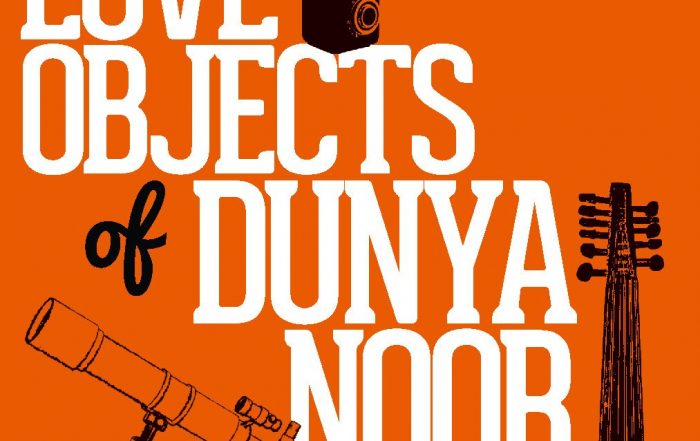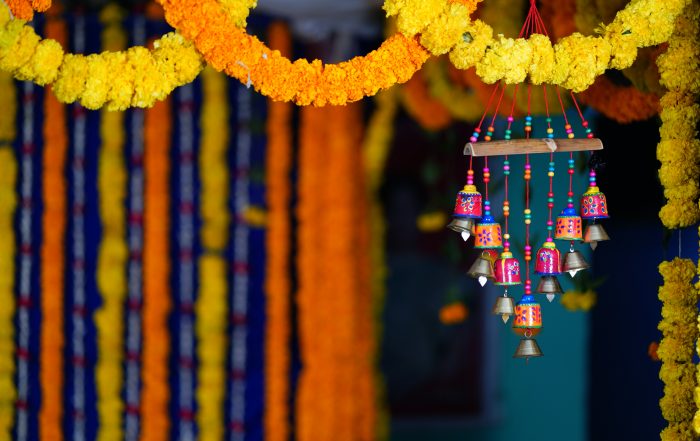Writing from a country straddling both the Arabophone and Francophone Worlds and often forgotten by both can put Mauritanian authors in the position of having to ‘explain’ their country through their work. Thus most Mauritanian fiction seems almost obsessively ethnographic, usually describing aspects of one of the country’s traditional cultures or occasionally life in the chaotic capital. In Al-hubb Al-mustaheel (“The Impossible Love,” 1999), however, Moussa Ould Ibno breaks away from this trend and instead uses Science Fiction to comment on ethical questions spurred by reproductive technology, as well as timeless questions regarding the nature of love.

Al-hubb Al-mustaheel begins with a father impatiently awaiting the birth of his first child, an event simultaneously momentous in a life and banal in its universality. It is then revealed that this soon-to-be-father had to wait four years for an incubator to become available so he could have a son. In the following chapter the history that led to the preponderance of single-parent birth and child-rearing is explained, beginning with the advent of technology that enabled couples to select the sex of their child. This led first to a gender imbalance in favour of males, and then to a war between the sexes over controlling the means of reproduction. This war lasted until the brokering of a truce which hinged on the destruction of the family as a social unit and the creation of two separate societies: one for women and one for men.
Romantic love is now regarded as an illness and delusion, and interaction between the sexes occurs only during the period of “mixed service.” During this time, enlistees are monitored closely to ensure that they showed no signs of love or affection towards their assigned sexual partners. It is believed that allowing love to be associated with reproduction would lead to the desire for family and the return of war and chaos. The protagonists, Adam and Manki, fall in love during their enlistment and find themselves forced into ‘rehabilitation.’ This prompts both to question the nature of love, especially whether it exists outside of physical desire and whether it can survive in the absence of the beloved. They each find different solutions to escape the torturous rehabilitation program without being completely brainwashed.
Ibno makes abundant references to Greek mythology and philosophy throughout Al-hubb Al-mustaheel. For example, at a critical juncture during Adam’s ‘rehabilitation,’ one of the characters retells Plato’s story regarding the origin of love (1). Additionally, there is a humorous scene from Adam’s childhood wherein he tries to understand what exactly adults want from him when they tell him to “be a man.” After Icarus visits him in a dream and tells him to build wings, he concludes that the adults want him to fly. As the classic Greek corpus reached Latin literature and then European cultures through Arabic translations, such references emphasise a shared aspect of our literary heritage. Referring to ancient philosophical conceptions of love in a tale that pathologises reproductive technology also gives the impression that antiquity had a stronger understanding of human nature.
Another interesting aspect of the novel is its bilingual origins. Moussa Ould Ibno originally wrote Al-hubb Al-mustaheel as L’amour impossible and, along with another one of his novels, he re-wrote the story in Arabic a few years later. According to a study by Mohammed Lamine Ould Moulay Brahim, the story and events remained the same between the French and Arabic versions, but the narration was ‘Arabicised’ and not simply translated passage-by-passage (1). Thus it could be considered another example of a self-translation. There was also a rumour that Moussa Ould Ibno created the Arabic version of the novel by telling the story in the Hassaniya dialect to a friend who then wrote it down in Modern Standard Arabic, which would link it to both the Francophone and the vernacular literary worlds of this diverse country.
The story of Al-hubb Al-mustaheel is commonly interpreted as a commentary on gender and sexuality in a conservative society (3), but it can be difficult to ascertain what Ibno’s stance is exactly towards issues like homosexuality and sex segregation. Regardless, Al-hubb Al-mustaheel is an engaging novel with a clear and descriptive style. It is a story made to travel easily between languages.
L’amour Impossible on Google Books
- “Aristophanes’s Speech from Plato’s Symposium.” Saint Anselm College : Saint Anselm College. N.p., n.d. Web. 19 Jan. 2017.
- Ould Moulay Brahim, Mohamed Lamine. “The Mauritanian Novel and the Duality of Origin.” Alif 20 (2000): 77-102
- “Ebnou, Moussa Ould (1956–).” Biographical Encyclopedia of the Modern Middle East and North Africa. Encyclopedia.com, n.d. Web. 19 Jan. 2017.
Relevant posts
How Love is Revolution: The Unexpected Love Objects of Dunya Noor
The novelist Rana Haddad writes about her novel, "The Unexpected Love Objects of Dunya Noor" for the MULOSIGE project.
Editorial for Special Issue of ‘Foreign Literatures’ on Indian Literature
Simon Leese translates ‘This issue’ (editorial for special issue on Indian Literature) by ʿAlī ʿUqlah ʿUrsān (Ali Ukla Ursan) al-Ādāb al-ajnabīyah 54 and 55, Winter [1987] and Spring 1988: 3-8. The original essay can
The Development of Arab-Indian Cultural Relations
Simon Leese translates Taṭawwurāt al-ʿalāqāt al-thaqāfīyah al-ʿarabīyah—al-Hindīyah (The Development of Arab-Indian Cultural Relations) by Mohiaddin Alwaye in al-Risālah 1083, 15th October 1964: 15-17, 20. The original essay can be found at the Alsharekh.org archive.





Thank you so much for this review! I really look forward to reading the book, and you’re right: I may never have discovered it existed if it weren’t for this. Hopefully, your review will help increase its readership. As a translator of Moroccan Francophone literature and reader of Arabic fiction in translation (which I will translate one day, as well), it’s endlessly frustrating to me that so much of what reaches the West–North African works published in France, translations published by English presses, etc.–caters to what the West seems to want to hear. Global politics, in one form or another, end up eclipsing voices that deserve to be heard and even sometimes–as you have pointed out–shaping the kind of literature produced by those voices. (The number of non-native Anglophones choosing to write in English these days feels like a reflection of that, as well. If I write in English–or French, in the Maghreb–my work will be more marketable, etc.) I love that Ibno didn’t allow his choice of subject matter to be swayed by these considerations. I want the world to see more than what they expect, or want, to see from these countries.
I’m also curious. I haven’t been able to locate the Arabic version of the novel yet. When you say it was “Arabicised,” you mean that the dialogue was French but transliterated into Arabic, correct? I find that fascinating, if so. I agree with Bamba–it definitely means that he wasn’t too concerned about “selling” the story to a global audience, just with authentically relating it… It’s an interesting choice, as it limits the novel’s readership in the Arabophone world. Though, honestly, Modern Standard Arabic also limits readership, I think, since most people who love it/can use it fluently are intellectuals. In North Africa, especially, since the spoken dialects of Arabic are so different, it is far from authentic…
This book review is an addition to the plethora of reviews that tried to capture the essence of Ibno’s novel Al-hubb Al-mustaheel. The idea that Mauritanian novels are almost ethnographies is true if it is considered from a postcolonial perspective. publishers , especially French publishers, would not to a great extent publish a novel that is not ethnographic. It is not only the case of Mauritania but the case of – I can assure with certainty- African literature be it francophone, anglophone, Lusophone or otherwise.
The fact that he managed to publish a science fiction novel in this milieux proves that he has something to say. However, this poses a problem. Who is his audience? I will take the risk of saying that Ibno writes for himself or he writes for whoever wants to read his novels if there is any. The question of the audience did not matter much to him more than the integrity of his message.
I don’t want to repeat what you have aptly described in the review, but Ibno’s vigilance when it came to translation shows a concern not for the audience but for the preservation of what he considers meaningful. He may not think of his Arabic novel as a translation but the act is.
The impossible love that is represented in the title is to me the impossibility of love between people who belong to different Mauritanian social and ethnic hierarchies. It is still an abomination to a greater degree to fall in love with someone who is lower or higher than you in the hierarchies.
Thank you Bamba for your very thoughtful comment. A few thoughts in response:
First of all, your point about the pressure African fiction writers face to be ethnographic in order to appeal to Western publishing houses and readers is important, and this is not only true for Mauritania. This is also something we are trying to address with MULOSIGE, to recognize that World Literature can be so much more than a way for different cultures to ‘represent’ themselves to Western readerships. However, in Ibno’s case, it is unfortunate that his work has not found the readership it deserves even among other Arabophone or African readers. Despite the story’s universal themes and science fiction setting, it seems to only have a significant reception in Mauritania.
I find your reading of the novel as showing how love is impossible between people of different social and ethnic hierarchies intriguing. Would that mean that gender in the novel is actually a stand-in for class and race? Do you think this applies in the sense that interaction between Mauritanians of different races and classes is tightly controlled?